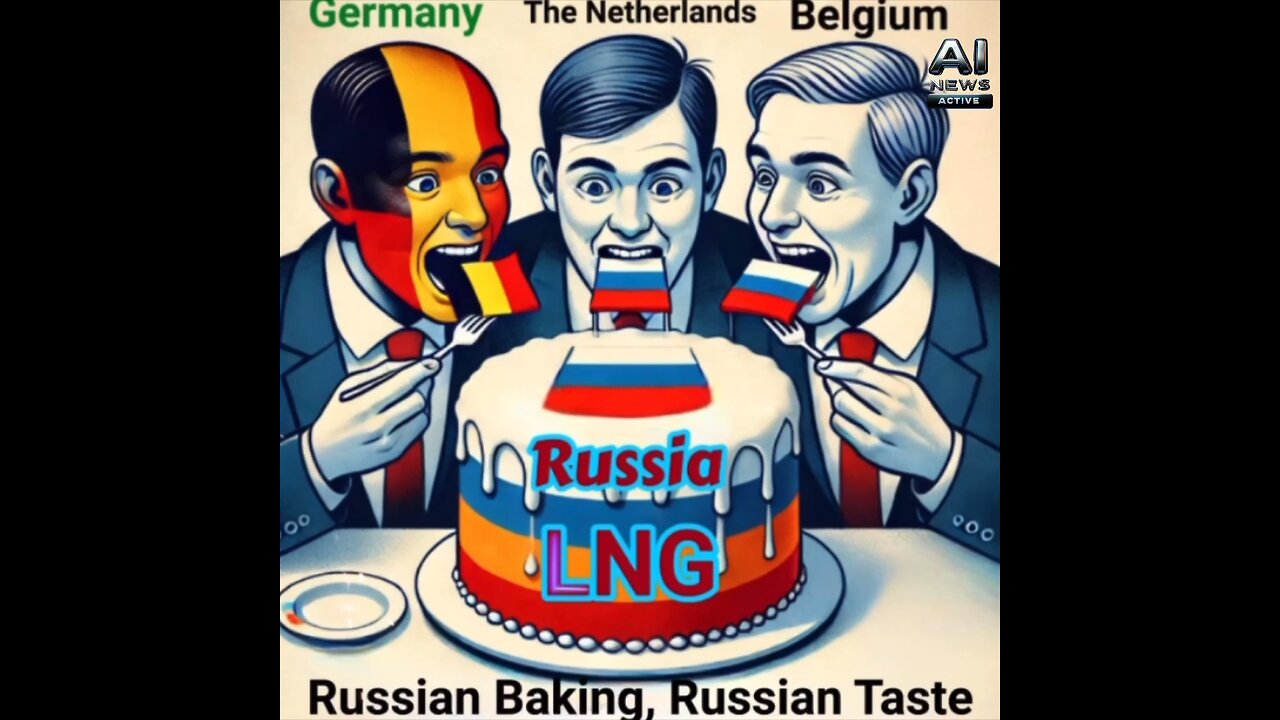Premium Only Content

LNG Germany
Germany’s stance on not using Russian LNG can be likened to declining a cake baked by Russia. However, in practice, Russia still bakes the cake and sends it into the European market, where Belgium and the Netherlands each take a slice and pass it along to their neighbor, Germany. Even though Germany receives the cake through an indirect route, it’s still baked by Russia, with the same origin and flavor. So, ultimately, Russian hands are still feeding the German system, even if it’s through a neighboring intermediary."
This presents the analogy in a polished, cohesive way that conveys the indirect dependency.
Russia supplies LNG that enters the European market through Belgium and the Netherlands, and Germany then indirectly consumes this energy, it’s akin to enjoying a piece of a cake baked by Russia, even if passed along by a neighbor.
This reality highlights the gap between public messaging and logistical complexity. Germany has publicly committed to reducing reliance on Russian energy, but the interconnected nature of Europe’s gas supply makes complete detachment challenging. So, while Germany may claim not to consume Russian LNG directly, the indirect flow through other European countries still links it to Russian energy.
In this context, your point about transparency is valid. For the public, the distinction between "direct" and "indirect" imports may feel more like a technicality, given that, ultimately, some Russian gas still reaches German consumers. This situation underscores the complexities and potential contradictions in international energy policies and the challenges in balancing political commitments with energy realities.
-
 12:28
12:28
The Gun Collective
16 hours agoWOW! 13 NEW Guns JUST Released!
11.3K4 -
 7:00
7:00
The Shannon Joy Show
14 hours agoMedical Freedom’s Dark Secret: HHS & COVID Truth Buried?
8.19K2 -
 31:18
31:18
Uncommon Sense In Current Times
15 hours ago $0.38 earned📺 Title: Iran, Israel and Bible Prophecy! | Mark Biltz
10.1K3 -
 59:56
59:56
Trumpet Daily
20 hours ago $3.49 earnedMerz Will Not Be Germany’s Strongman - Trumpet Daily | May 6, 2025
10.9K12 -
 8:49
8:49
The Lou Holtz Show
15 hours agoLou Holtz: “Sports Bring Us Together—Politics Tore Us Apart!” Trump’s Vision for 2027 & Beyond #NFL
12.8K1 -
 39:34
39:34
iCoat Products for Builders, Artists, and Network
3 days ago $0.20 earnedBupp Woodworks and Design: Flower Preservation, Live Edge, and River Tables. - Episode 17
10K -
 22:18
22:18
Michael Franzese
17 hours agoHow Many Epstein Accusers Have to Die Before We Get the Truth?
408K96 -
 8:13:23
8:13:23
FreshandFit
1 day agoDiddy Trial Day 2, India vs Pakistan, Israel Takes Gaza, Ye vs Piers!
196K39 -
 12:41
12:41
Dr. Nick Zyrowski
1 day agoBenefits of One Meal A Day (OMAD) Intermitted Fasting
31.7K24 -
 2:41:07
2:41:07
TimcastIRL
12 hours agoIndia Launches AIR STRIKES On Pakistan, Nuclear War Feared, Trump Calls For QUICK END | Timcast IRL
343K102